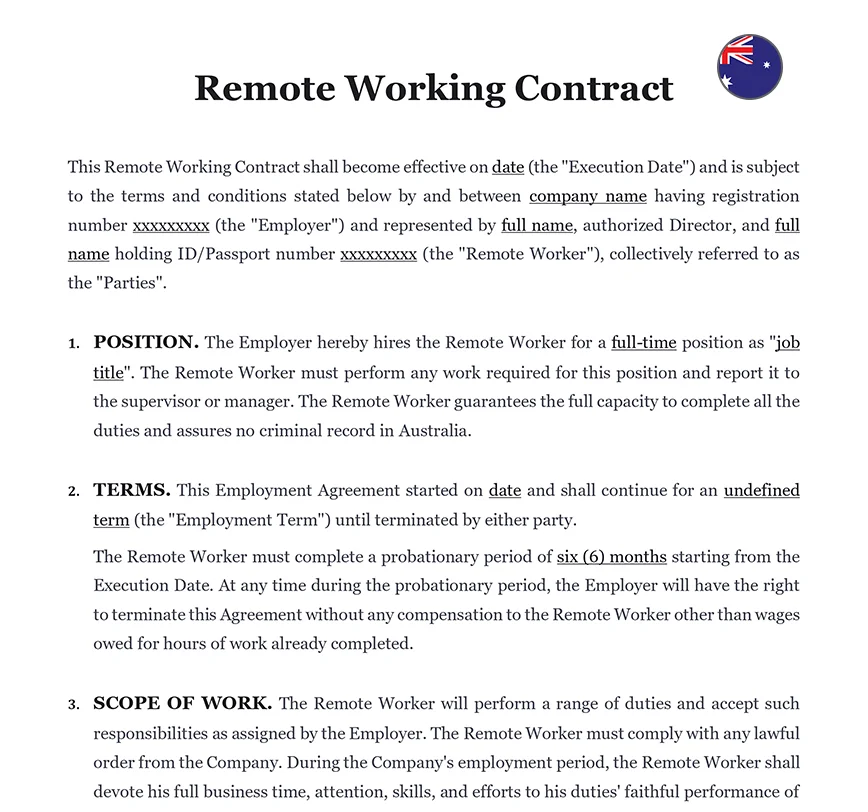Understanding the Importance of a Working from Home Contract
A Working from Home Contract is essential when employees transition to a home-based work environment. This document outlines the specific terms and conditions of remote work, ensuring clarity between employers and employees. Whether you’re an employer looking to formalize remote work arrangements or an employee seeking to understand your rights and responsibilities, having a comprehensive Working from Home Contract is crucial. It not only defines the scope of work but also addresses key aspects like data security, work hours, and compensation.
The Shift to Remote Work in Australia
The shift to remote work in Australia has been significant, especially in recent years. Many businesses have adopted flexible working arrangements, allowing employees to work from home either full-time or part-time. This trend has necessitated a deeper understanding of the legal aspects surrounding remote work. Employers must ensure that their policies comply with Australian labor laws, while employees need to be aware of their rights and obligations under a Working from Home Contract.
Key Elements of a Working from Home Contract
Drafting a Working from Home Contract requires careful consideration of several key elements that ensure legal compliance and protect the interests of both parties:
1. Work Hours and Flexibility: Clearly define the expected work hours, including whether there is flexibility in scheduling. This section should also address overtime policies and how work hours will be tracked.
2. Designated Work Location: Specify the employee’s designated work location, typically their home address, and outline any expectations for work-related travel.
3. Compensation and Reimbursement: Detail the compensation structure, including any allowances or reimbursements for home office expenses. Employers should also clarify how salary adjustments or bonuses will be handled in a remote setting.
4. Performance Metrics and Reporting: Outline how employee performance will be measured and reported, ensuring that the metrics are aligned with the company’s overall goals.
5. Data Security and Confidentiality: Include provisions for protecting company data and ensuring secure communication channels. This section should also address the employee’s responsibility to maintain confidentiality, similar to the clauses found in a Non-Disclosure Agreement (NDA).
6. Termination and Dispute Resolution: Clearly define the terms under which the Working from Home Contract can be terminated by either party. Additionally, include a dispute resolution clause to address potential conflicts that may arise during the course of remote work.
Ensuring Health and Safety Compliance
Employers in Australia are legally obligated to provide a safe working environment, even when employees are working from home. This obligation extends to conducting risk assessments to identify potential hazards in the home environment. Employers should also provide employees with ergonomic equipment, such as chairs and desks, to prevent workplace injuries. These health and safety measures are crucial for compliance with Australian labor laws and are as important as ensuring safety in a physical office.
Employee Rights and Obligations in Remote Work
Employees working remotely retain the same rights as those working in a traditional office setting, including:
| ➤ The right to fair compensation |
| ➤ Protection from discrimination |
| ➤ Access to leave entitlements |











